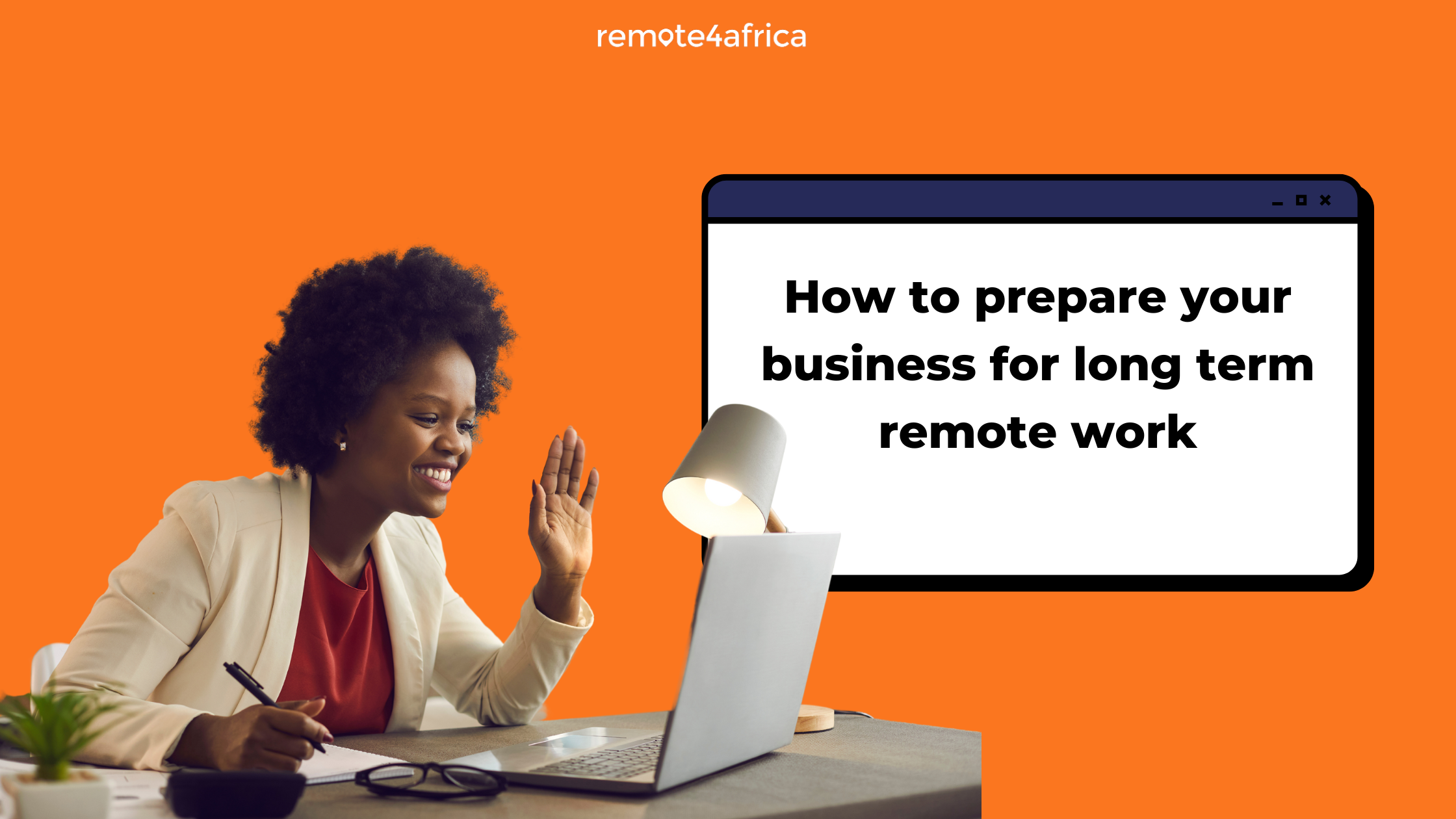How to Prepare Your Business for Long Term Remote Work
If you are an employer who wants to prepare their business for long-term remote work, then this guide is for you. With these steps and carefully laid-out guidelines, you would be able to build a business that runs seamlessly with a virtual office.

The COVID-19 pandemic increased the remote work tendency, driving many businesses to implement remote or hybrid work to ensure business continuity.
This trend has resulted in increasing reliance on remote working technologies and shifting work cultures, including a rethinking of classic office layouts. Remote work provides benefits such as improved flexibility and access to a larger talent pool, but it also presents obstacles such as sustaining team cohesion and dealing with work-life balance issues.
Looking to hire remote workers? Start here
If you are an employer who wants to prepare their business for long-term remote work or thinking of switching to remote/hybrid work, then this guide is for you. With these steps and carefully laid-out guidelines, you would be able to build a business that runs seamlessly with a virtual office.
To prepare your business for long-term remote work, do the following:
Research
The role of research cannot be understated, especially for an organisation venturing into remote work. It is important to know all there is to know about remote work arrangements, useful tools to deploy, potential challenges you might face and more.
Invest in technology and remote project management tools
Seamless communication, collaboration, and project management are the basis for successful remote operations for an organization; these can be achieved by investing in the latest technological tools.
Take cybersecurity measures
As a remote organization, your data will be mainly stored in the cloud. For this reason, you need to have measures put in place to protect your sensitive information while also granting safe access to your remote workers.
Design flexible policies and procedures
A remote organization needs clear work policies and work hours, and the company's expectations from remote workers must be stated in unambiguous terms so the staff members can have a clear understanding of their duties, rights, and benefits.
Train and support remote staff.
Arrangements for training on how the tools for communication and collaboration are to be used and a system should be in place to cater to any complaints or challenges that would be encountered by your remote work.
Design a remote performance monitor system
One of the challenges that could arise as a newly established remote organization is that the performance of the remote workers might be a challenge to measure. In order to prevent the lack of productivity that might ensue from this, a system of metrics must be put in place to check staff productivity. Here is a human resource guide on managing your staff in a remote organization.
Prioritize physical and mental health of remote staff.
Remote workers still need their work-life balance, and this is mostly what most remote workers cherish most about their choice of work life. For this reason, as an organization going into long-term remote work, your remote staff needs to be assured that their well-being is being taken into consideration in the company's policy.
Use effective and accessible communication channels
In order to promote and facilitate the work process, reliable technological tools are needed to ensure that the efforts of your remote staff are not redundant.
Prepare for emergencies
As you plan to go into long-term remote work for your organization, plan for emergencies and develop contingency plans for issues that might arise, especially those relating to the tools you use for your work.
Team bonding and check-ins
To create and maintain team cohesion, there should be periodic meetings among the remote staff to foster bonds among them. Also, between you as an employer and each of your remote staff members, there should be regular check-ins, so you would be able to build a healthy work relationship.
Document Processes
As you are going into long-term remote work for your organization, it is important to document your processes; this will make it easy to replicate these processes. It also helps you know where to make corrections for future development.
Many employers and recruiters of remote workers attest to the benefits of having a remote workforce. Following these guidelines, building a remote organization that can also boast of sturdiness and optimal productivity would become easier for you.
Sourcing for remote workers for your business has been made easy with platforms like Remote4Africa where you can post your job openings and receive applications from remote-ready workers.
